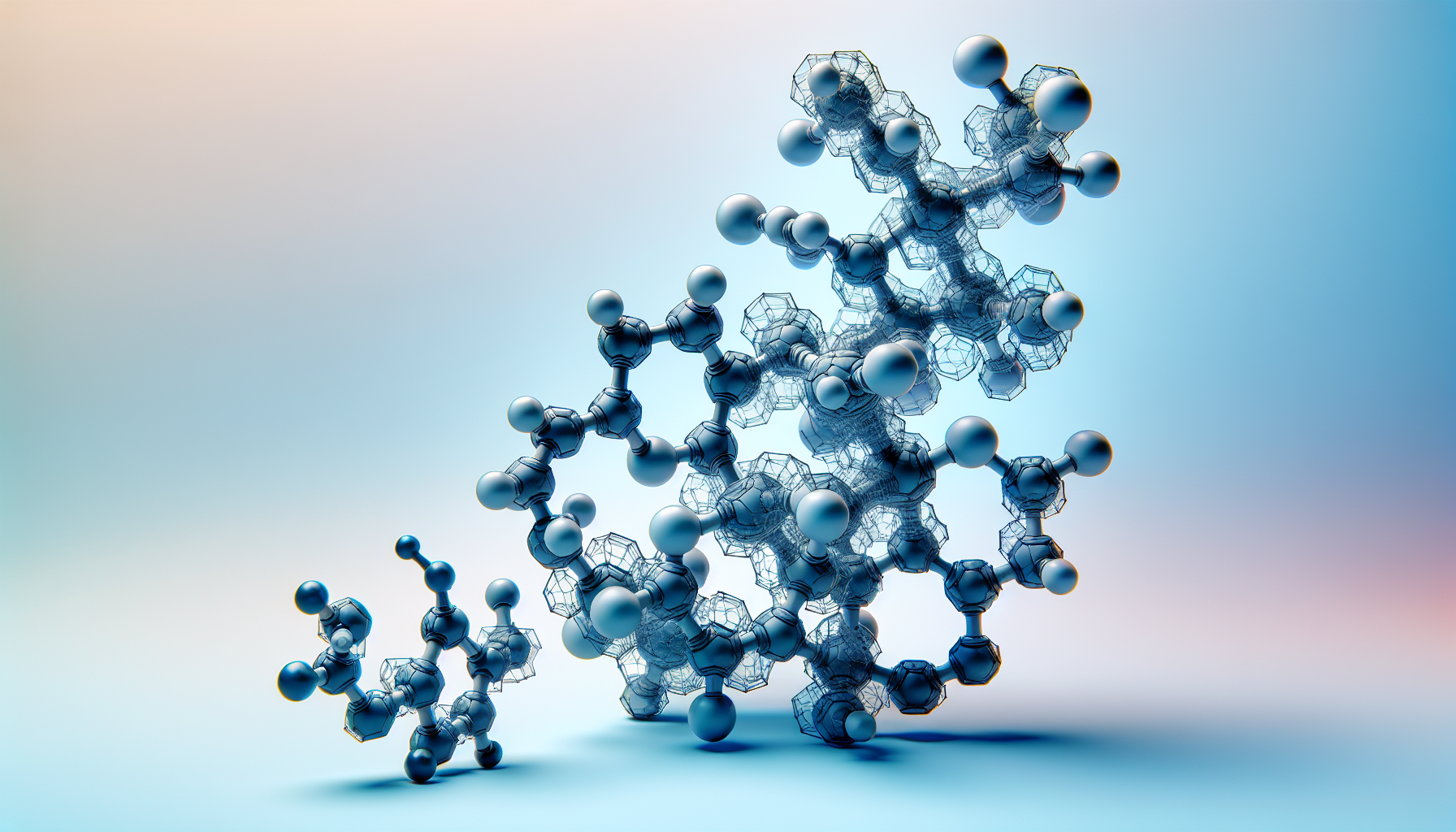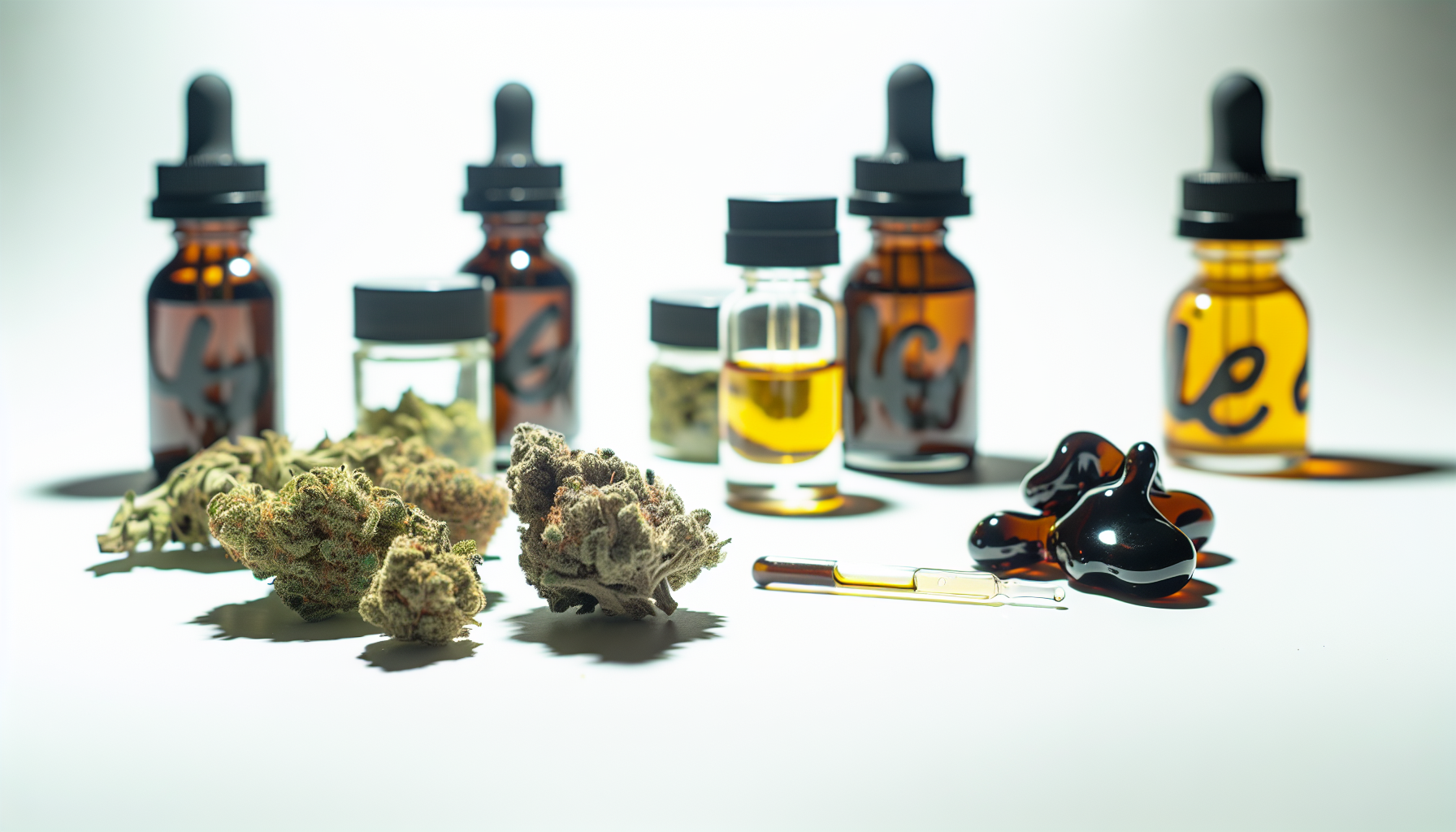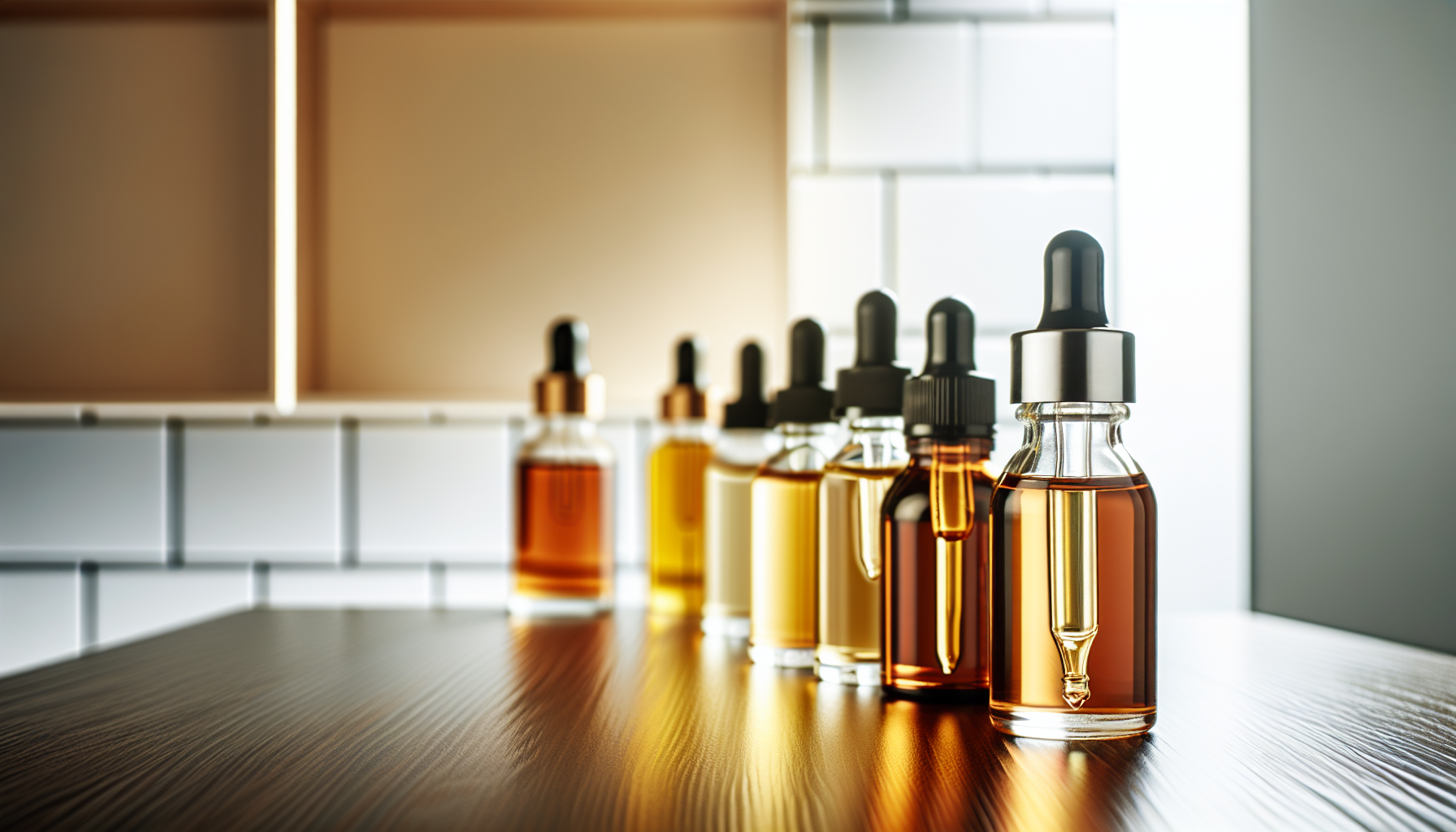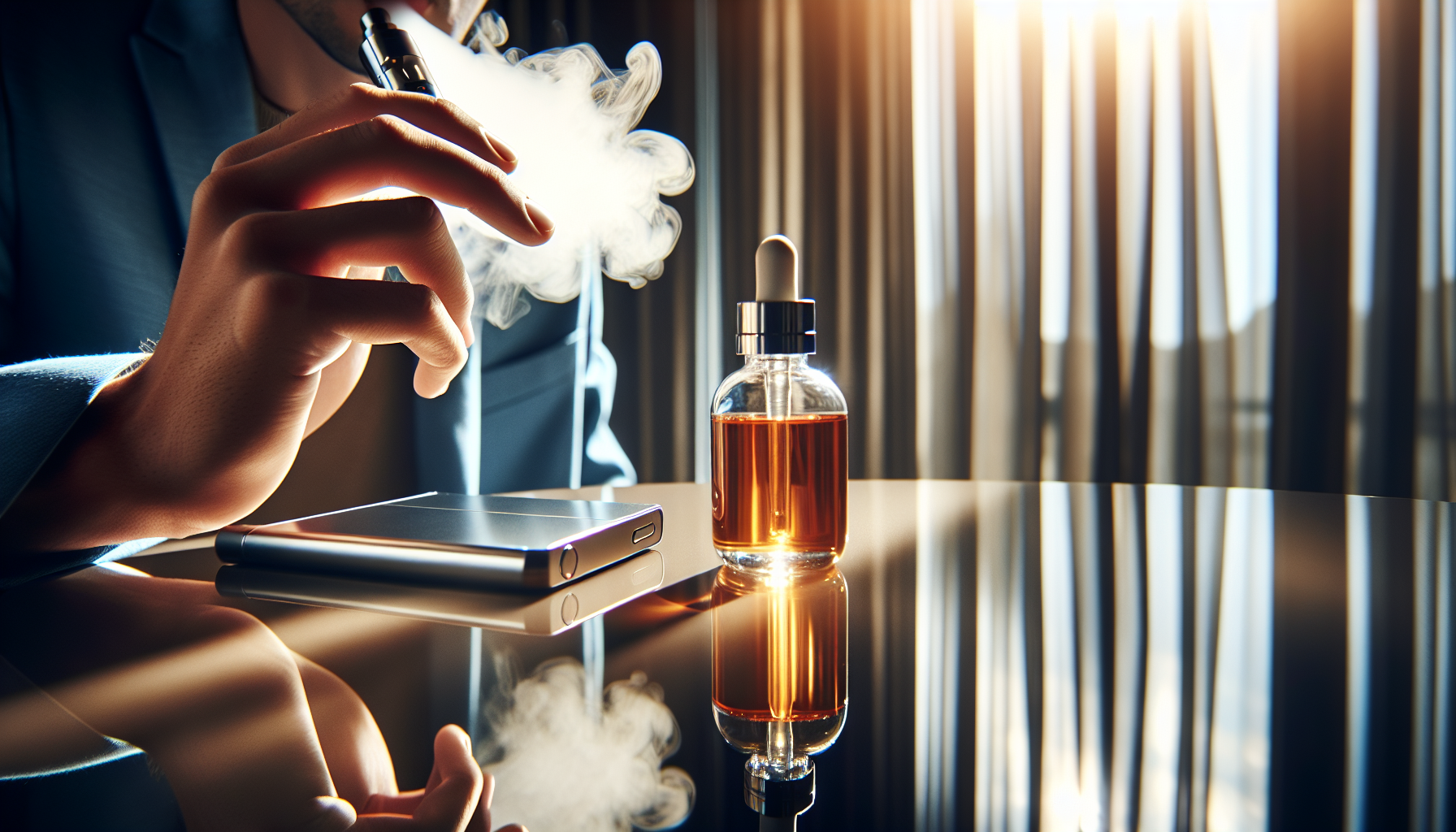THCP Discovery: The Super-Cannabinoid Stronger than THC!
What is THCP and how does it differ from THC? Discovered in 2019, THCP is a cannabinoid that could surpass THC in potency and affinity for CB1 receptors, sparking interest for its therapeutic potential and psychoactive effects. In this article, we explore the structure, effects, legality, and products based on THCP available.
Key Points
-
THCP is a cannabinoid with a longer carbon chain than THC, giving it an enhanced affinity for endocannabinoid receptors and potentially more potent effects.
-
Preliminary research indicates that THCP could have significant medical applications, particularly in treating pain, mood, and appetite, though further studies are needed to confirm these properties.
-
In France, while the legal status of THCP is complex, there are no known legal risks associated with its consumption, possession, or sale, but it is essential to respect dosages and consider potential side effects.
THCP: Definition and Discovery

THCP is a cannabinoid first discovered in 2019. Its unique molecular structure slightly differs from THC, the most famous cannabinoid of cannabis. Researchers continue to study this intriguing cannabinoid to better understand its properties and therapeutic potential, including examining the effects of thc p.
THCP may present a remarkable affinity for CB1 receptors, posing particular challenges for research due to its rarity and the growing interest in CBD.
Chemical Composition of THCP
The chemical structure of THCP is similar to that of THC, but with a distinction. THCP has a longer carbon chain, giving it an increased affinity for endocannabinoid receptors. In fact, THCP appears to have a higher affinity for CB1 receptors compared to THC, likely due to this longer carbon chain.
In addition to THCP, there is also CBDP, which has a longer side carbon chain compared to that found in the THC molecule.
Therapeutic Potential of THCP
The therapeutic potential of THCP is a source of excitement among researchers and cannabis users. Preliminary studies indicate that THCP could have beneficial effects on pain, mood, and appetite. Users who have experimented with THCP also report analgesic, anti-inflammatory, and anticonvulsant properties.
THCP could potentially treat the following disorders:
-
neurological disorders
-
sleep disorders
-
stress
-
anxiety
-
anxiety disorders
However, further research is needed to confirm these properties.
The Effects of THCP on the Body
The effects of THCP on the body are varied and may include psychoactive, relaxing, and analgesic effects. However, regular and prolonged consumption of THCP may increase the risk of developing cannabis dependence and respiratory disorders.
As with any substance, it is important to consume THCP responsibly.
Psychoactive Effects
The psychoactive effects of THCP, one of the chemical compounds, are often compared to those of THC, but may be more potent. The particular chemical structure of THCP, characterized by a longer carbon chain, gives it an enhanced affinity for endocannabinoid receptors and potentially more potent effects than THC.
Indeed, THCP interacts more strongly with the CB1 and CB2 receptors of the endocannabinoid system compared to THC, which can potentiate its psychoactive effects.
Relaxing and Analgesic Effects
THCP may offer relaxing and analgesic effects, helping to relieve pain, stress, and anxiety. By targeting mechanisms related to stress and anxiety, THCP can contribute to reducing symptoms of anxiety, particularly in patients suffering from generalized anxiety disorders.
Additionally, by interacting with the body's endocannabinoid system, THCP can modulate pain and function as an effective analgesic agent.
The Legality of THCP in France
In France, the legality of THCP is quite complex. Although THCP is not expressly prohibited, it is also not explicitly authorized. This places THCP in a sort of legal gray area. However, the consumption, possession, and sale of THCP are not associated with known legal risks at this time.
Limitations and Restrictions
Despite its uncertain legal status, THCP is subject to certain limitations and restrictions. For example, products containing THCP must comply with current regulatory criteria, particularly a THC level below 0.3%.
Moreover, THCP is not considered a controlled substance in France.
Future of Legislation
The future of legislation on THCP in France is uncertain. Research results could potentially impact the legislation of THCP in France by considering the impact on consumer satisfaction and differentiating between recreational cannabis use and its therapeutic use.
THCP is currently allowed on the market in France, whether for sale, purchase, or consumption.
THCP-based Products Available

There is a variety of THCP-based products available on the market, including flowers, oils, and resins, as well as puffs and e-liquids.
These products offer diverse ways to enjoy the effects of THCP.
THCP Cannabis Flowers

THCP cannabis flowers offer a unique and high-quality aromatic experience. Although they have advantages, it is important to note that their THCP content can vary depending on several factors, such as the plant's genetics, growing environment, and the presence of other cannabinoids.
It is crucial to properly store these flowers to preserve their THCP content.
THCP Oils and Resins

THCP oils and resins are popular due to their ease of use and increased bioavailability. When purchasing these products, it is important to consider delivery times, price transparency, and product quality.
THCP Puffs and E-liquids

THCP puffs and e-liquids offer a discreet and convenient method of consumption. However, the precise dosage can vary depending on the product's concentration. It is important to follow the manufacturer's instructions to achieve the desired effects.
Responsible Consumption of THCP
Responsible consumption of THCP is an essential practice to minimize undesirable side effects and comply with current regulations.
It is advised to start with a small dose and gradually increase until the desired effect is reached.
Dosage and Precautions
It is essential to respect recommended dosages when consuming THCP. It is recommended to start with a small dose and gradually increase until the desired effect is reached.
In case of overdose, it is advised to consult a healthcare professional if symptoms persist or worsen.
Contraindications and Side Effects
The contraindications and side effects of THCP may include allergic reactions, gastrointestinal disorders, and drug interactions.
Furthermore, THCP may increase the risk of psychotic symptoms in individuals with pre-existing mental health disorders.
Research and Studies on THCP
Research and studies on THCP continue to better understand its effects and therapeutic potential.
Research and development work is underway to better understand this cannabinoid and its potential implications.
Preliminary Results
The preliminary results of studies on THCP are promising. They suggest that THCP could have medical applications due to its unique properties, particularly for disorders like paradoxical sleep issues and drowsiness.
THCP has also shown a greater affinity for cannabinoid receptors CB1 and CB2 compared to THC, which could potentially induce more pronounced therapeutic effects.
Future Perspectives for Research
The future of research on THCP is promising. Future research directions on THCP will need to delve deeper into its discovery and explore its potential effects on the human body.
It will also be important to examine the potential applications of THCP in the medical and therapeutic field.
Consumer Opinions on THCP
Consumer opinions on THCP are varied, with both positive and negative testimonials. Some consumers report beneficial effects such as relaxation, pain reduction, and anti-inflammatory properties. Others report adverse side effects such as paranoia, drowsiness, fatigue, impaired movement, dizziness, changes in appetite, dry mouth, red eyes, anxiety, increased self-awareness, vomiting, tachycardia, and dry mouth.
Positive Experiences
Consumers who have had positive experiences with THCP often talk about its relaxing and analgesic effects. Many report an improvement in mood and a general sense of well-being after consuming THCP.
Negative Experiences
As with any product, THCP is not free from undesirable side effects. Some consumers have reported side effects such as:
-
paranoia
-
drowsiness
-
fatigue
-
impaired movement
-
dizziness
-
changes in appetite
-
dry mouth
-
red eyes
-
anxiety
-
increased self-awareness
-
vomiting
-
tachycardia
-
dry mouth.
In Summary
In conclusion, THCP is a promising cannabinoid that has generated significant interest in the scientific community and among cannabis consumers. Thanks to its unique chemical structure, THCP interacts more strongly with cannabinoid receptors than THC, which could explain its more potent effects. Although research on THCP is still in its early stages, the preliminary results are promising and suggest significant therapeutic potential.
Frequently Asked Questions
Is THCP legal in France?
THCP is currently not considered illegal in France, although it is not specifically legislated. However, since THC is prohibited, this could lead to a future ban on THCP in the coming years.
What are the effects of THCP?
Early observations suggest that THCP might have more potent soothing and calming properties than those of other known cannabinoids. It could also lead to euphoric effects, cognitive disturbances, somatic manifestations, low blood pressure, nausea, and vomiting.
What is THCP+?
THCP+ is one of the cannabinoids present in cannabis, also known as Tetrahydrocannabiphorol.
What are the effects of THCV?
THCV may have stimulating effects on the central nervous system, inducing mental clarity and increased energy.
How can I consume THCP?
You can consume THCP in various ways, such as through cannabis flowers, oils, resins, puffs, and e-liquids. Choose the method that best suits you and always comply with the prevailing legislation.
